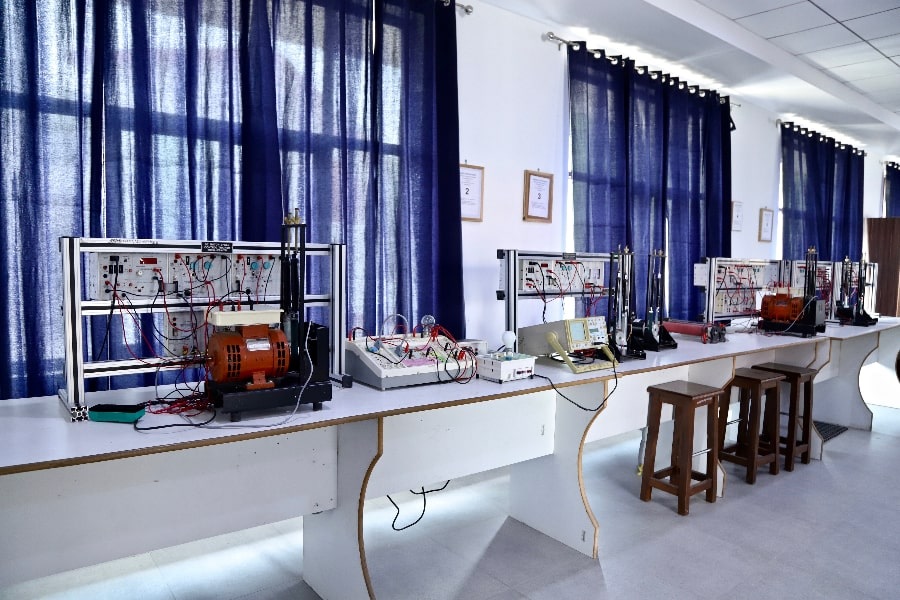Known for being problem-solvers and innovators, engineers are in high demand in today's job market. These professionals utilise mathematical calculations, creative thinking, and scientific principles to design, develop, and maintain complex structures and systems, as well as find solutions that address real-world challenges. Engineering is a dynamic field that comprises multiple specialities, ranging from electrical engineering to mechanical engineering. Electrical engineers are central to modern technological advancements. Joining electrical engineering classes and pursuing higher education in this field would particularly be ideal for analytical thinkers who are good at mathematics and physics.
Electrical Engineering: An Introduction
Electrical engineering is a vital and dynamic field that merges scientific principles with innovative thinking to address discerning real-world challenges. It serves as a fundamental pillar of technological advancement and impacts almost every aspect of our daily lives. Right from facilitating the development of complex communication systems and cutting-edge electronics to powering homes and industries, the contributions of electrical engineers are indispensable.
As an increasing number of industries rely on automation, renewable energy, and smart technologies, the expertise of electrical engineers becomes more valuable than ever. In addition to maintaining existing systems, electrical engineers also innovate and develop new solutions that meet evolving technological and environmental demands. With consistent advancements in fields like telecommunications and robotics, the need for well-qualified electrical engineers is steadily rising.
Hence, pursuing an electrical engineering course can pave the way for a lucrative and exciting career. Earning a bachelor’s degree in electrical engineering is among the first steps towards entering this field. Such a program would equip you with the problem-solving skills, technical knowledge, and hands-on experience needed to meet the complex challenges of today’s engineering landscape.
Benefits of Pursuing Higher Studies in Electrical Engineering
Growing Need Across the Globe
Electrical engineers are in high demand worldwide. The rapid growth of technology and infrastructure ensures that qualified electrical engineers will be needed to design, build, and maintain complex systems. Industries like electric vehicles and renewable energy are especially expanding at a rapid pace in many parts of the world, thereby providing a boost to job opportunities available for electrical engineers. The global shift toward sustainable energy solutions is playing a pivotal role in boosting the demand for professionals who have the competency to develop and manage energy-efficient technologies.
Diverse Career Options
After obtaining a bachelor’s degree in electrical engineering, you can pursue employment prospects in multiple sectors, like robotics, healthcare, manufacturing, automation, renewable energy, and telecommunication. You might be involved in research, project management, consultancy, and more. Owing to the flexibility of the field, you would be able to explore diverse areas of interest, adapt to changing markets, and enjoy job security.
Lucrative Salary and Compensation
Individuals with a bachelor’s degree in electrical engineering from a reputable university enjoy a high earning potential. The specific salary of electrical engineers would depend on factors like industry, experience, and location. Overall, they are among the highest-paid workers in the engineering sector. Moreover, electrical engineers get ample opportunities to advance their careers and income. As you gain more experience in the field, you would be able to take on more senior roles, like that of project manager, technical director, or chief engineer, and hence enjoy a significant salary hike.
Electrical engineering is an ever-evolving field. Electrical engineers are continuously exposed to new systems and technologies, which makes learning a crucial aspect of the profession. Electrical engineers are often at the forefront of innovation, especially when it comes to the development of smart devices and artificial intelligence (AI), advancements in wireless communication, and more. Joining electrical engineering classes would help you keep pace with such changes and make sure that you become a valuable asset in the workforce.
Author bio: The author is an educationist and a student counsellor. He has conducted research in several areas of education. He has also written several blogs for several leading education-related websites.





Comments